Modern Bengali Literature, since its early days, has been enriched by the works of its myriad women writers. So, to understand the depth and volume of the expansive literary wealth of contemporary Bengali literature, it is crucial to acknowledge the significance of its women writers. Be it in opening the gates of formal education to women or emancipating them from numerous oppressive patriarchal norms and ideologies, the Bengali women writers have been the flag bearers of many transformational changes in the history of Bengal. Throughout history, we see a slew of Bengali women writers (albeit underrepresented) building a strong case for their literary genius and efficiency for a long time.
For the above context, one must bear in mind the fact that ‘Bengal’ no longer represents a geographical territory or a clearly identifiable cultural group. It defines a thriving, transforming community, scattered across the world for generations, and connected in a very complex manner to the Bengali language and certain highly resilient cultural codes.
At The Antonym, we believe that writing is an important tool for women to voice their experiences of identity, sexuality, marriage, love, family, and life. Considering literary language has been traditionally shaped by men, women’s experiences are told from a male perspective for far too long. So, when that barrier is broken and we find more and more powerful women writers making their mark, we do find that women writers are breaking the conventions and finding a new language that let them blossom—a new form for a new experience of womanhood.
Our digital magazine, where the focus is on translation, did not start with any special emphasis on women writers but translated both men and women just based on content and literary quality. We do not intend to change that. But when we take a dip at what we have produced in the form of translation over the few years, there was a surprising sense of discovery. We found the feminine voice articulating traditional stories in so many different ways that we decided to take a second look. And perhaps, identifying the feminine pen as one of our special interest areas as we go forward.
To start with, we are taking a measured look at the Bengali women writers whom we have already translated. They are all contemporary, borne out of different life experiences, and created a distinct storytelling style that not only differentiates them from men writers but also among women. Their distinct approaches while throwing up different challenges for translators also opens up a different translated world. That revelation made us believe that we could bring a new focus on Bengali women writers and explore and expand our scope in the form of translating their contributions to Bengali literature.
With that, we start our journey with the Feminine Pen where we will endeavor to translate more of their works as well as present many more contemporary Bengali women writers on our pages in the coming days.
Shaheen Akhtar: Intermingling the political & personal
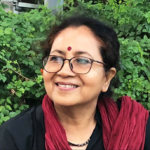
Her interview Talaash and Beyond – the Trauma, the Craft and the Ongoing Journey: Delving deeper with Shaheen Akhtar delineates her journey of being a writer and traces the trajectory of her contributions to Bengali literature. Her short story Cold Tea presents a different picture of women’s personal trauma in navigating love and sexuality. Another of her story, The Edges Of Love, depicts the various colors of love, life, and war through its nuanced narration.
Anita Agnihotri: The empathetic pen

Her short story, The Surrender of Yashwant, the Guerilla, and two of her poems reflect her empathetic style which brings out a new flavor in Bengali literature. They put forward her unique identity among the Bengali women writers.
Tilottoma Mojumdar: Bringing out the magic in the mundane
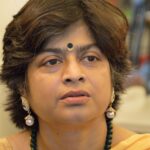
One of her short stories, translated into English, Li’l Scummy bring forth the minute emotions involved in the passing scenes of life. Her works have certainly marked her as one of the most influential Bengali women writers in contemporary Bengali literature.
Nasreen Jahan: Reflecting emotions of human lives
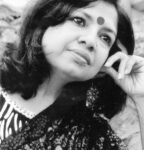
Her short story, A Different Kind, translated by Bishnupriya Chowdhuri, is a brilliant take on a woman’s intricate experiences of living with a disability.
Indrani Datta: Surreal and sublime
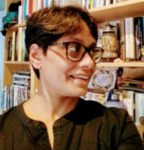
Her stories The First Day of Monsoon, Samaresh’s Life Force, A Poor Conductor, and Stalks Of Lotus bear testimony to her forte in blending surrealism into her linguistic style which is often measured and poignant.
Prativa Sarkar: Depicting subaltern realities
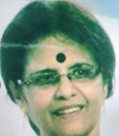
Her short stories Sparrow’s Flesh and Daughter of the Dead are characteristic of her unique style to bring forth narratives that are far less talked about in Bengali literature.
Papree Rahman: Lyrical surrealism
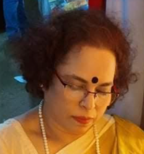
Her short story, A Cloudless Night, An Eclipsed Moon, bears her unique flair for literary language.
Kizzy Tahnin: Simplistic narratives
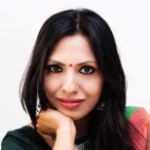
She knits simplistic narratives from the elements of her surrounding land and mostly juggles with memories and nostalgia to give rise to enchanting plots. Her easy-going language and simple style are reflected in the story The Bilimbi Note, translated into English by Shamita Das Dasgupta.
9. Ishrat Tania: The transcendental realist
An Associate Professor with a Ph.D. from the Marketing Department of Dhaka University, she is a young writer whose works revolve around perceptions and thoughts about human relations, despair, dreams, nature, transcendence, society, and politics. Her published books in Bengali include Nemeche Ichche Niribili (2016), Beejpurush (2018), Mad Ek Swarnava Shishir (2020), and Alaper Amphitheater (2020).
Her stories offer a strange coalition of transcendental language juxtaposed with realist narratives highlighting socio-political issues. Her excellent story The Deed Of Acquittance brings to light the rarely discussed issue of cryptophasia in twins.
Yashodhara Raychowdhury: An effervescent poetic voice
A prominent voice in new-age poetry, she has several collections of poetry to her credit, establishing her immense contribution to Bengali literature since 1993. Not just a poet, she has also written articles, short stories, and novellas. She was awarded the Krittibas Puroskar in 1998.
Her short story The Man and The Tree, and two of her poems, translated into English, carry her unique effervescence in language, stylistics, and theme of her writings.
Sayantani Bhattacharya: The passionate pen
A well-known personality of Bengali literature, she is the voice of young writers who dared to follow their passion of writing in contemporary times. Her poems, short stories, novels, post editorials, and articles are published in numerous renowned Bengali magazines, little magazines, and newspapers. Her published books in Bengali include Kothay Cholehho Tumi Banshioala, Lokkhikutumer Gramophone, Gangshaliker Nupur, Bhanga Nodi Gota Chand, Aamar Shrabonpur Aamar Uthon, Magic chhata O aro 9. She received the Samatat Sahitya Purashkar in 2015 and Shaiba Bharati Puroshkar in 2016.
Her story 1st January, and two of her poems, translated into English, highlights the passion with which she writes.
Follow The Antonym’s Facebook page and Instagram account for more content and exciting updates.

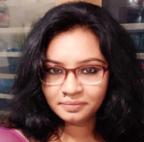
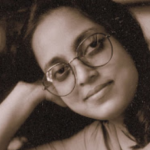
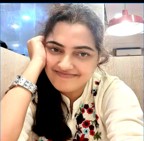
























Loved the women writers introduced by The Antonym. True that women writers “voice their experiences of identity”, when they write. Of late, I have learnt that translating their work leads to “an experience of one’s own identity”. Hope to learn more about women who use their pen to paint, sculpt and at times wage a war against all the forces that attempt to confine them.
A lovely experience for the women who mostly suffer from domestic violence followed by identity crisis!
Things,no doubt,have changed!
I appreciate Antonym’s wonderful endeavour!
A lovely experience for the women who mostly suffer from domestic violence followed by identity crisis!
Things,no doubt,have changed!
I appreciate Antonym’s wonderful endeavour!